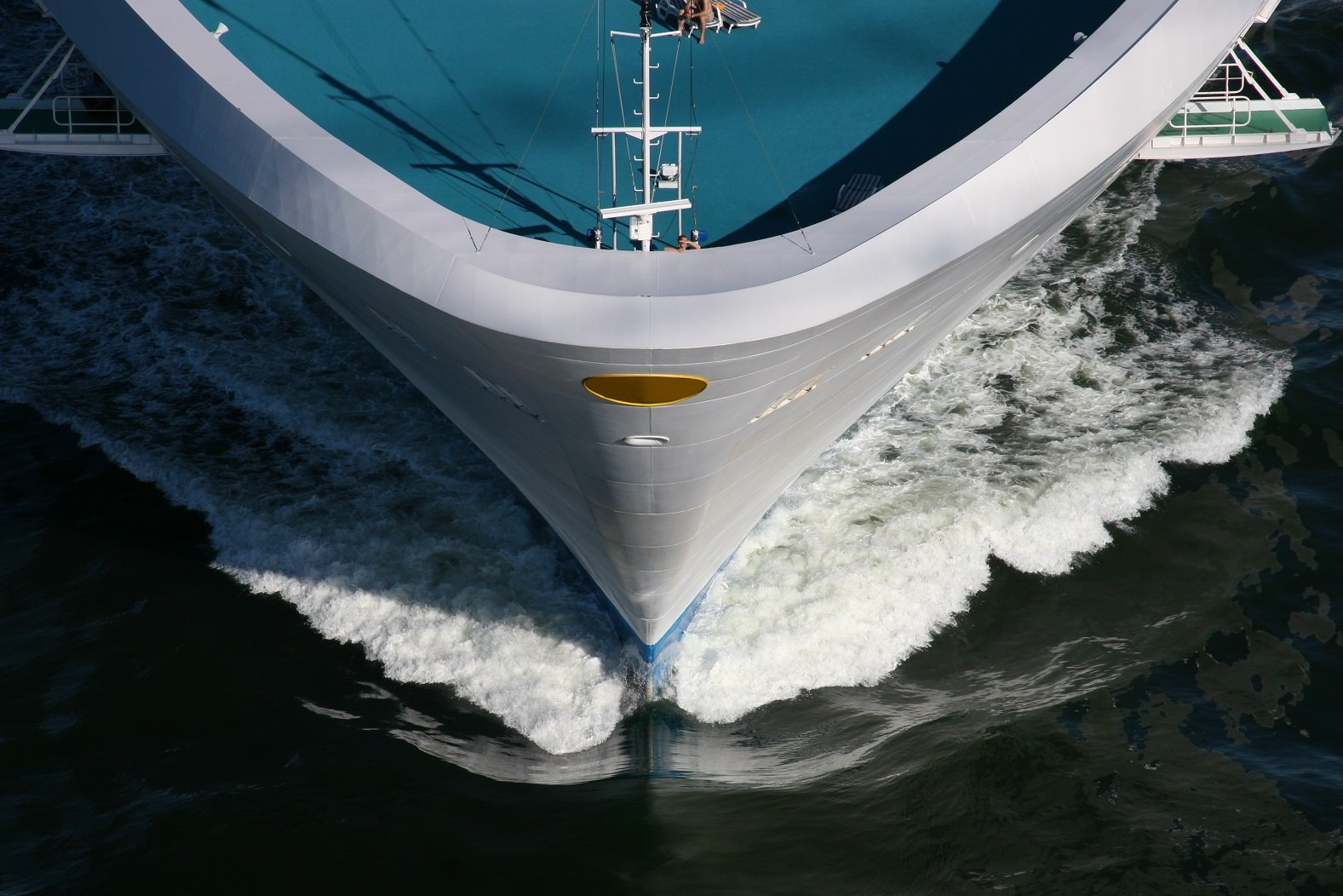It's been a rough ride for cruise line stocks this year, but I've argued in the past that Royal Caribbean (RCL 0.73%) is the best stock to own in this volatile industry. It has held up better than Carnival (CCL 1.75%) (CUK 1.95%) and Norwegian Cruise Line Holdings (NCLH 3.76%) these days, even if the victory is only relative.
Royal Caribbean stock is the only one of the three players that has more than doubled off of its mid-March lows. It's also the only cruise line that isn't trading 70% below its 52-week highs, but you won't find Royal Caribbean shareholders high-fiving one another about a nearly 69% drop from its January peak as of Tuesday's close.
Royal Caribbean reported its fiscal first-quarter results on Wednesday morning, giving investors fresh info to decide whether it continues to be the best bet in this hammered travel specialty sector. There was some good, bad, and ugly news in the report, but ultimately the company continues to show signs of being the best player to weather this fierce storm.

Image source: Royal Caribbean.
Anchors aweigh
There isn't a lot worth gleaning from the actual look back at Royal Caribbean given the COVID-19 pandemic that shuttered operations in March. Revenue plunged 17% to $2 billion for the first three months of this year. A healthy profit a year earlier is bumping up against a reported loss of $1.4 billion, or an adjusted net loss of $310.4 in the first quarter.
Nothing in the rearview mirror seems to matter at this point. Momentum was strong ahead of the coronavirus crisis, but it's not like the world hit pause on the cruise line industry as if it's some VCR where a simple push of a play button will get everything back to where we last left off. This is a hard stop. This is a rewind. This is a mangled VHS tape to mend when the power goes back on.
Royal Caribbean's report now is all about assessing how the now-profitless cruise line will get back on track, and the prognosis is mixed here. Royal Caribbean estimates its monthly cash burn rate to be between $250 million and $275 million during a prolonged suspension of operations, and it had $2.3 billion in liquidity as of the end of April. It completed a $3.3 billion senior secured notes offering this week, boosting its liquidity by another $1 billion.
Bookings for the balance of 2020 remain "meaningfully lower" at price points slightly below last year, and that's not a surprise. With questions about when sailings will resume, it's easy to see why even diehard cruise fans are hesitant to book near-term getaways. The news is kinder looking out to advance bookings for next year. Royal Caribbean's booked position for 2021 is within historical ranges and at price points up in the mid-single digits relative to where 2020 bookings were a year ago.
These bookings aren't being made with all new money. With 55% of passengers on canceled cruises opting for enhanced future cruise credit in lieu of a cash refund -- a good trend to see -- some of that already collected credit is naturally going to work here.
No one knows when cruise ships will begin sailing again. Carnival has committed firmly to a handful of ships that will begin cruising in August, but this decision is ultimately not up to the cruise lines to make.
The thing that hasn't changed is that Royal Caribbean should continue to have the healthiest margins in the business when we do get back to business. Carnival is the largest player, but that doesn't translate into scalability here. Carnival serves 45% of the global cruise market through its various lines, but its namesake brand with its entry-level pricing makes it a magnet for first-time cruisers -- and that's the market that will take the longest to recover given all of the negative headlines about the industry. Norwegian Cruise Line gets strong marks, but it's much smaller than the other two players.
Royal Caribbean has the right balance of size and strong operating metrics to recover. The timeline of the recovery -- both for the resumption of sailings and the global economy -- is the mother of all question marks, but Royal Caribbean continues to hold up as the best choice for investors willing to stomach the risk and buy into the depressed industry.









